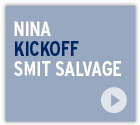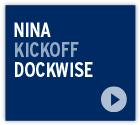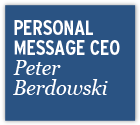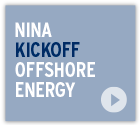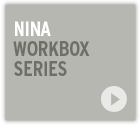NINA at Work articles
- Number 2 / 2024
- Number 1 / 2024
- Number 2 / 2023
- Number 1 / 2023
- Number 3 / 2022
- Number 2 / 2022
- Number 1 / 2022
- Number 3 / 2021
- Number 2 / 2021
- Number 1 / 2021
- Number 1 / 2020
- Number 4 / 2019
- Number 3 / 2019
- Number 2 / 2019
- Number 1 / 2019
- Number 4 / 2018
- Number 3 / 2018
- Number 2 / 2018
- Number 1 / 2018
- Number 6 / 2017
- Special edition / 2017
- Number 4 / 2017
- Number 3 / 2017
- Number 2 / 2017
- Number 1 / 2017
Media Library
TestimonialVideosNews Items
"To address culture and safety, the first step is to understand culture."
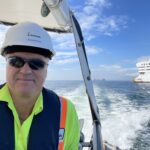 Darius MacLiver, SHE-Q Manager, has been involved in the MIA project as SHE-Q Manager since February 2021. "I see a lot of similarities in isolated tough conditions with the Gorgon, Australia project I worked on. Here in Manila, we have also had to gather a workforce of local workers, in a remote area, with limited accommodation, where we look after the workforce in all circumstances."
Darius MacLiver, SHE-Q Manager, has been involved in the MIA project as SHE-Q Manager since February 2021. "I see a lot of similarities in isolated tough conditions with the Gorgon, Australia project I worked on. Here in Manila, we have also had to gather a workforce of local workers, in a remote area, with limited accommodation, where we look after the workforce in all circumstances."
Cross culture training sessions
Working with people from different cultural backgrounds is all about treating people with respect, caring for them and showing empathy, Darius says. "To address culture and safety, the first step is to understand culture." Therefore, cross-cultural training sessions were organized during the project; for the expats to understand Filipino culture and for the Filipinos to understand the more ‘to the point’ Dutch and Western culture. "What we have learned is that we as expats, and then I mean the westernized side, look at the Values: how to give people confidence to speak up and show support? But the Rules on the other side of NINA are just as important. The Filipino culture is really a discipline and rules-driven culture." What impresses Darius most about Filipino culture is the strong sense of family values. "That's what is very evident and very noticeable here in the Philippines. It’s all about family. That's the reason why they do what they do."
Full-time NINA trainer
Many of the local employees had no experience with the work that needed to be done. "We have invested quite a lot in teaching them the necessary skills and increasing hazard awareness. What is unique about this is that we used a full-time NINA trainer for this project. Employees have received and continue to receive extensive training. The core part in the trainings is to give local people the confidence to speak up. This has taken a considerable amount of effort and continues to do so because they are not used to it." According to Darius, you can see the project improve, not only from a safety and health perspective, but also from an operational perspective.
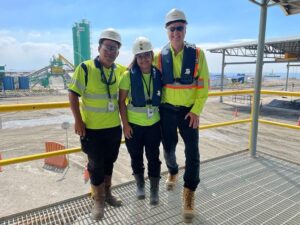
Local Supervisors as key safety leaders
"We want everyone in the workforce to feel heard. This comes down to more than 1,200 people. Local Supervisors and Foremen are an important link with the local employees. We have identified these leaders based on their demonstrated natural leadership within the group." Darius indicates that this project’s focus is on training, coaching, and mentoring. The local leaders play a vital role in this. "The employees learn to trust the people they're working with, the Supervisors and expats, and understand that we are here to look after them. We are still working on giving them the confidence to be able to raise issues without consequences." To achieve this, proactive discussions are organized in small groups of 10 people, led by Supervisors, Foremans and/or HSE Managers. This allows the team to create open discussions where everyone can learn from and understand each other. "Providing positive recognition for good behavior and good work is also an important way to show trust and appreciation. You can see a person grow as a result and this ultimately has a positive effect on the entire group."
Connecting through activities
Throughout the project, many activities are organized that contribute to making connections between the different employees and cultural backgrounds. "Local comedians and bands provide entertainment, we organize karaoke competitions and play a lot of basketball. Some 20 mixed teams of expats and locals participated in the basketball competition. That was exciting to see because it did not only concern participating teams, but the matches were also well attended, and the various teams were properly supported." These initiatives are organized with a social perspective in mind as trust is gained by laughing together and encouraging interaction. "Our management team has done a lot of work to make this a safe, fun and social working environment."
